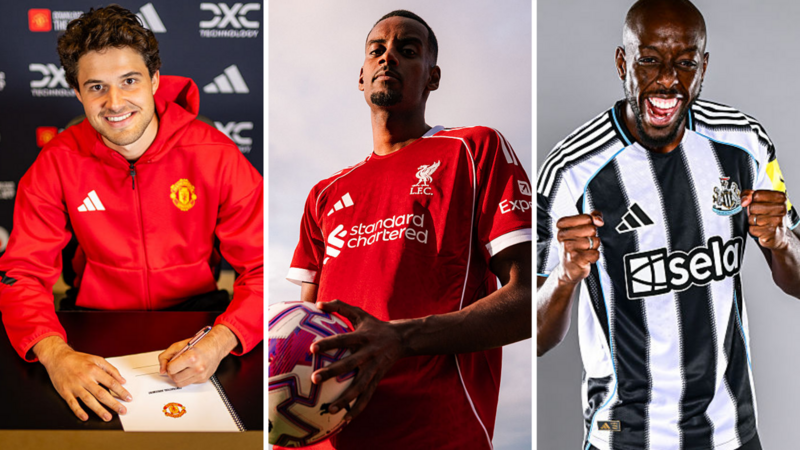Premier League Shatters Record with £3bn Summer Spending Spree!




In an unprecedented display of financial muscle, Premier League clubs have shattered previous spending records, with their collective outlay during this summer's transfer window topping a staggering £3 billion. This monumental expenditure not only underscores the economic robustness of the league but also reflects the fierce competitiveness among its top clubs, all vying for supremacy in one of the world's most prestigious football arenas.
The summer of 2023 has been marked by a whirlwind of high-profile signings as clubs have not hesitated to open their checkbooks wide. The competition for both emerging talents and established stars has driven up transfer fees to previously unseen heights, reflecting both the market demand and the deep pockets of Premier League teams. This is a significant increase from previous years, where spending has been notably high but never breached the £3 billion mark.
This splurge is indicative of the financial recovery following the global downturn caused by the pandemic, which had seen reduced revenues from gate receipts due to stadium restrictions. With fans now fully back in stadiums and broadcast revenues continuing to climb, clubs have been keen to reinvest in their squads. The influx of funds from lucrative broadcasting deals, including international rights, has undoubtedly facilitated such heavy spending.
Manchester City and Chelsea have been among the most active in the market, signaling their intentions to not only dominate domestically but also to make significant impacts in European competitions. Manchester City's approach has been strategic as they aim to build a squad capable of sustaining success over multiple fronts, epitomized by their acquisition of several key players who add both depth and quality to an already formidable team.
Chelsea's strategy, under its new ownership, has been one of overhaul and ambition. Their aggressive recruitment policy is part of a broader project to reinvent the team and challenge the status titles consistently across all competitions. This indicates a clear intent to return to the top echelons of both English and European football, striving to outpace fierce local and continental rivals.
The landscape of the Premier League has been evolving with these financial dynamics at play. Notably, even clubs traditionally seen as lower-tier within the division have ramped up their spending substantially. This democratization of financial power underscores a broader trend: the increasing commercialization and global appeal of the league. Clubs such as Newcastle United and Aston Villa have made significant investments, driven by ambitious ownership groups eyeing European qualification spots.
This level of spending does have its critics, however. Concerns linger around the sustainability of such high financial outputs and the impact on the sport. Some argue that the vast sums involved are inflating transfer fees globally, distorting player valuations, and creating an untenable economic environment for smaller clubs. Moreover, the focus on foreign talent acquisition raises questions about the development pathways for homegrown players within these clubs.
Despite these criticisms, the thrill of the transfer window captivates fans and onlookers globally, bringing with it a wave of excitement and speculation. Social media and sports news platforms buzz with each announcement and rumor, fueling a 24/7 news cycle that both feeds and is fed by the massive financial stakes involved.
In conclusion, this record-breaking spending spree by Premier League clubs is not just a testament to the league’s financial health but also a clear signal of intent from its participants. It reflects a strategy driven by ambition, fueled by economic capability, and shaped by a competitive zeal that defines the modern football era. As the new season unfolds, the effects of these investments will become evident, potentially reshaping the competitive landscape of the league and asserting the Premier League's position as a pinnacle of global sports entertainment.